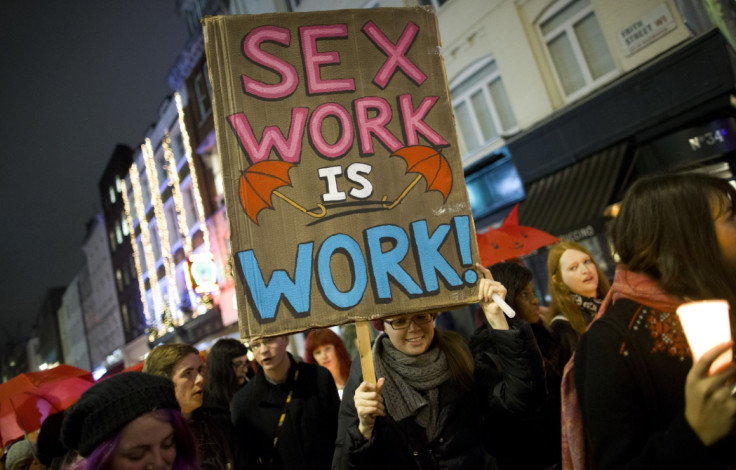Jeremy Corbyn sparks Labour sex row after backing decriminalising prostitution

Jeremy Corbyn has faced a backlash from high-profile Labour MPs after he declared his support for decriminalising prostitution. Former interim Labour leader Harriet Harman and Birmingham Yardley MP Jess Phillips blasted the left-winger over his remarks to students at Goldsmith University on 3 March.
"I am in favour of decriminalising the sex industry. I don't want people to be criminalised. I want to be [in] a society where we don't automatically criminalise people. Let's do things a bit differently and in a bit more civilised way," the Labour leader reportedly said.
But Harman claimed Corbyn was wrong to describe prostitution as "work", insisting it was "exploitation and abuse". She added: "Women should be protected and men prosecuted."
What you need to know
The law on prostitution in England and Wales does not prohibit exchanging money for sexual acts or intercourse.
But soliciting sex, so called 'kerb-crawling' and brothels are all outlawed.
The Home Office published the Paying the Price report into the commercial sex industry 2004.
The document, released in the New Labour years, estimated that there were as many as 80,000 people involved in prostitution in the UK.
Phillips, who previously pledged to "knife Corbyn in the front", took to social media site Twitter: "Man says we should decriminalise a known violence against women. Why did it have to be this man?"
But the Labour leader did receive some support from Natalie Bennett and the Green Party. The fellow left-wingers have promised to decriminalise the sex trade.
"The Green Party believes that the law should not seek to regulate consensual sexual activities between adults where those do not affect others. Where there are such effects, a balance must be reached," the Greens explain on their website.
"Adults should be free to do as they wish with their own bodies, and to practise whatever form of sexual activity they wish by themselves or with each other by mutual consent.
"This includes the freedom not only to engage in such sexual acts, but also to be photographed or filmed doing so, to make such images available to other adults with their consent, and to be able to view such images. That someone might receive payment for any of these activities should not affect this freedom."
Amnesty International also stirred controversy in 2015 when the group claimed prostitution was a human right and should be subsequently be legalised across the world. A report from the right-leaning Institute of Economic Affairs has also backed a move.
"A key objection to the sex industry is that it damages women and that the presence of porn, lap-dancing and prostitution in a country promotes rape and other violence against women," said Dr Catherine Hakim, author of the paper.
"However, although there are too few rigorous studies to draw definitive conclusions, all the available evidence points in the direction of prostitution and erotic entertainments having no noxious psychological or social effects, and they may even help to reduce sexual crime rates."
© Copyright IBTimes 2024. All rights reserved.






